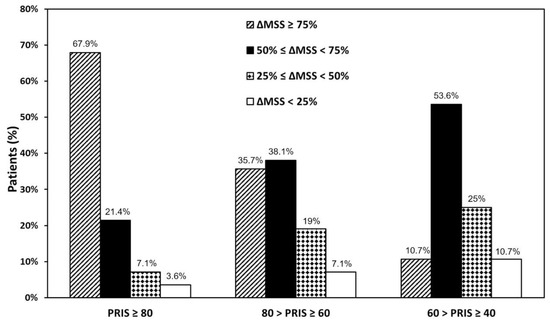Mormile I, Granata F, Detoraki A, Pacella D, Della Casa F, De Rosa F, Romano A, de Paulis A, Rossi FW. Biomedicines. 2022 Apr 22;10(5):971. doi: 10.3390/biomedicines10050971.
Abstract
A specific predictive tool of allergen immunotherapy (AIT) outcome has not been identified yet. This study aims to evaluate the efficacy of a disease score referred to as Predictive Response to Immunotherapy Score (PRIS) to predict the response to AIT and identify eligible patients. A total of 110 patients diagnosed with allergic rhinitis with or without concomitant asthma were enrolled in this study. Before beginning sublingual immunotherapy (SLIT), patients were evaluated by analyzing clinical and laboratory parameters. A specific rating was assigned to each parameter to be combined in a total score named PRIS. 
Stratification of patients in three groups according to the Predictive
Response to Immunotherapy Score (PRIS) results and their ΔMSS-24.

No comments:
Post a Comment